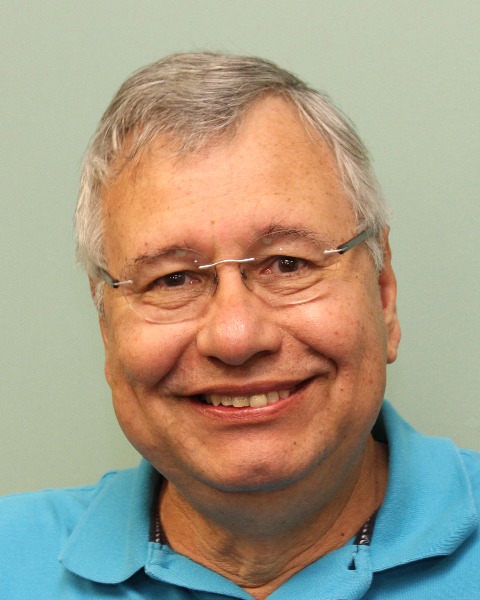Research on Evaluation
Culturally Responsive and Equitable Evaluation Stories from Evolving Evaluation
-
SS
Sandra Silva, Master of Management
Evaluator & Change Consultant
Change Matrix, United States -
SS
Sandra Silva, Master of Management
Evaluator & Change Consultant
Change Matrix, United States -
SS
Sandra Silva, Master of Management
Evaluator & Change Consultant
Change Matrix, United States -

Christina Davis, MPA
Evaluator & Change Consultant
Change Matrix, Virginia, United States -

Arthur Hernandez, PhD (he/him/his)
Professor
University of the Incarnate Word
San Antonio, Texas, United States -
KJ
Karen T. Jackson, Ph.D.
Assistant Professor Leadership Studies
North Carolina A&T State University
Author(s)
Chair(s)
Disscussant(s)
Presenter(s)
Location: Room 204
Abstract Information: Historically, the fields of research and evaluation have excluded and at times exploited the voices of historically marginalized and diverse communities. The mission of Expanding the Bench® (ETB) is to support diverse evaluators and Funders of Evaluation to value, practice, and promote a culturally responsive and equitable evaluation (CREE) ecosystem. ETB is based on the belief that several things have to happen to create a CREE ecosystem. We need more evaluators who bring lived experience with marginalization and oppression. We need more evaluators practicing CREE and we need a field that is ready to dismantle racist policies, practices, and programs that intentionally seek evaluators from diverse backgrounds. ETB launched a research study Evolving Evaluation: Journeys with Culturally Responsive and Equitable Evaluation, to engage evaluators in critical reflections of their own evaluation journeys. The purpose of this research is to document 1) trends in the evolution of practitioners’ evaluation approach and practice, 2) examples of practitioners’ CREE practice, and 3) changes that are needed in the evaluation ecosystem to support more equitable practices. This research used a unique research design that matched research participants in dyads for these conversations where they shared their stories, reflected on what shaped their evaluation approach, and discussed how their approach has evolved over time. As part of this panel discussion, the ETB Team will share findings that are emerging from this research, with a focus on the lived experiences that have been most critical in shaping participants’ evaluation journeys and how they view their role as evaluators, especially related to advancing social justice. In addition to revealing the primary themes from these conversations, we will also present stories shared by research participants and their recommendations for the field.
Relevance Statement: Expanding the Bench® (ETB), a Change Matrix initiative, is based upon the acknowledgement that systems (i.e., the evaluation field, philanthropy, higher education, and government) supporting evaluation practices that lack a culturally responsive and equitable evaluation (CREE) lens perpetuate assumptions and can lead to community harm. The mission of ETB is to support diverse evaluators and Funders of Evaluation to value, practice, and promote a CREE ecosystem. CREE incorporates cultural, structural, and contextual factors (e.g., historical, social, economic, racial, ethnic, gender) using a participatory process that shifts power to individuals most impacted. Context and systemic barriers have not always been taken into consideration in evaluation design. To ensure these voices and contexts are included, ETB promotes CREE, which requires the integration of justice, equity, diversity, inclusion, and engagement in all phases of evaluation. ETB has a three-pronged approach: 1) developing and expanding a new pathway for racially and ethnically diverse evaluators (the people); 2) promoting the practice of excellent, culturally responsive and equitable evaluation by supporting diverse evaluators from diverse racial and/or ethnic groups (the practice); and 3) increasing field demand among funders/commissioners of evaluation for racially/ethnically diverse evaluators (the field). As part of the field-building efforts, ETB recently launched a multi-year research effort, Evolving Evaluation: Journeys with Culturally Responsive and Equitable Evaluation, that is engaging evaluators in critical reflections of their own journeys, stories, and experiences with evaluation. The purpose of this research is to document 1) trends in the evolution of practitioners’ evaluation approach and practice, 2) examples of practitioners’ CREE practice, and 3) changes that are needed in the evaluation ecosystem to support more equitable practices. We need more evaluators practicing CREE and we need a field that is ready to dismantle racist policies, practices, and programs and intentionally seeks evaluators from diverse backgrounds who practice CREE. This presentation will highlight findings that are emerging from this research project, which will lift up the stories of evaluators of color and how their lived experiences has shaped their evaluation practice. ETB will promote the findings and recommendations that emerge from the research, to inform the field and identify strategies that ETB can address to advance the practice of CREE.
